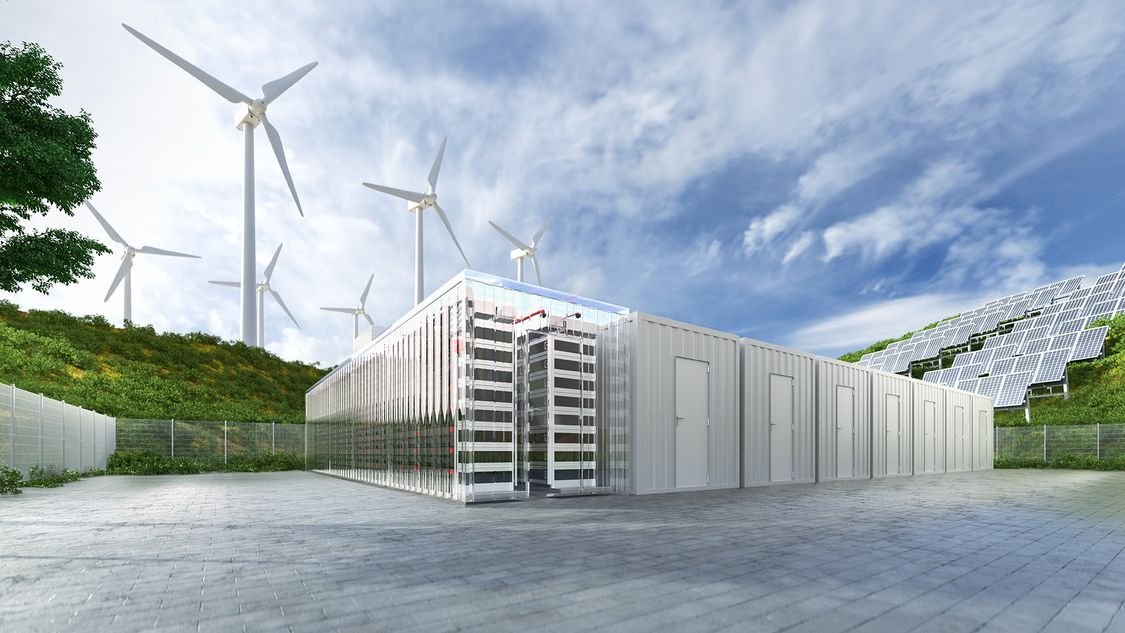Investing in solar power is a smart choice for individuals looking to reduce energy costs and promote eco-friendly practices. However, solar energy isn’t available around the clock, especially at night or on cloudy days.
This is where energy storage systems come into play. These systems store surplus solar power generated during daylight hours for future use, ensuring a reliable and steady electricity supply even when the sun isn’t shining.
Here’s How Storage Systems Can Significantly Enhance Your Solar Investment.
What are Energy Storage Systems?
Energy storage systems (ESS) are technologies designed to capture and store energy generated at a specific moment for future use. These systems allow for the efficient management of energy resources, ensuring surplus energy can be retained and utilised when needed, rather than being wasted.
Types of ESS
Battery Energy Storage Systems (BESS):
- Utilises lithium-ion batteries.
- Efficiently captures energy and responds quickly to electricity demands for homes and businesses.
Thermal Storage:
- Stores energy by capturing heat.
- Can be used for heating or cooling applications.
Mechanical Storage:
- Includes methods like pumped hydro and compressed air.
- Commonly used for large-scale energy storage.
Advantages of ESS
Grid Independence:
- Reduces reliance on the power grid.
- Provides energy during outages or inconsistent supply.
Cost Savings:
- Lowers electricity expenses by using stored energy during peak rates.
- Can lead to long-term financial savings.
Power Backup:
- Acts as a reliable power source during outages.
- Offers a quieter, eco-friendly alternative to fuel-based generators.
Understanding the Functioning of ESS with Solar Energy
Storage systems work by capturing surplus energy generated by solar panels. The process involves three key steps:
- Energy Generation: Solar panels convert sunlight into electricity during daylight hours.
- Storage: Excess electricity that isn’t immediately used is stored in the energy storage system.
- Utilisation:When sunlight is scarce, or energy demand is high, the stored power is used to supply electricity to homes or businesses, reducing dependence on the grid.
The Latest Developments in Energy Storage Technologies
Advancements in energy storage technology have significantly improved accessibility and efficiency for users of power systems.
- Enhanced Battery Innovations: Cutting-edge battery technologies, such as state and flow batteries, offer increased energy density and longevity. This results in lower energy storage costs, making them a practical choice for both residential and commercial applications.
- Interfacing with Intelligent Power Grids: Modern storage systems can seamlessly connect with power grids, enabling users to trade surplus energy. This enhances energy management and maximises returns on investment.
Selecting the Appropriate Energy Storage Solution
Choosing the right energy storage solution depends on several factors, including your energy usage habits, budget, and the size of your solar panel setup.
Key Considerations:
- Capacity: Select a system that can effectively store all the energy produced by your solar panels.
- Efficiency:Prioritise systems with high round-trip efficiency to minimise energy loss during storage and discharge.
- Durability:Consider the system’s longevity to ensure it remains reliable over time.
Conclusion
Integrating ESS into your power setup can significantly enhance its advantages. By storing surplus energy, you ensure a reliable power source, reducing your reliance on the grid and lowering energy expenses. As technology advances and costs decrease, now is the ideal time to consider incorporating an energy storage system into your strategy. This option optimises your energy usage while experiencing greater self-sufficiency and savings. An energy storage solution, combined with your solar investment, provides clean energy, improves reliability, and reduces costs.



